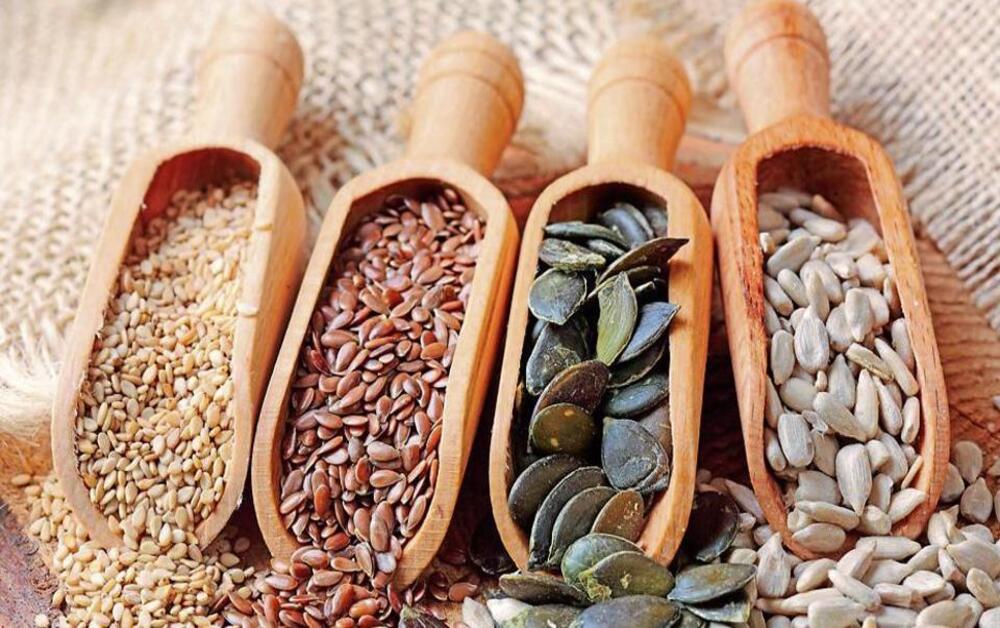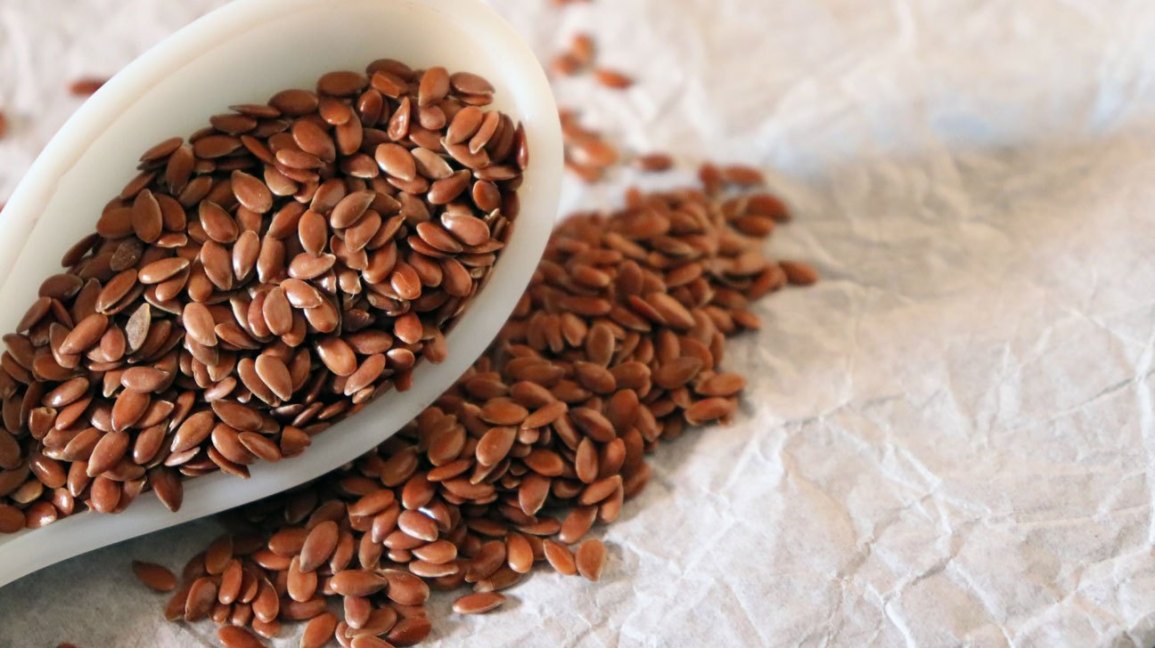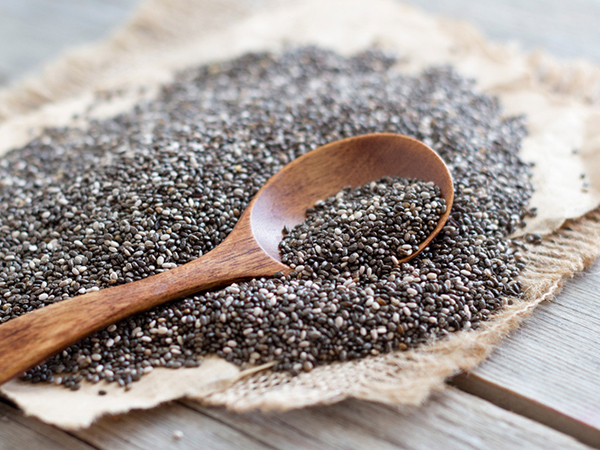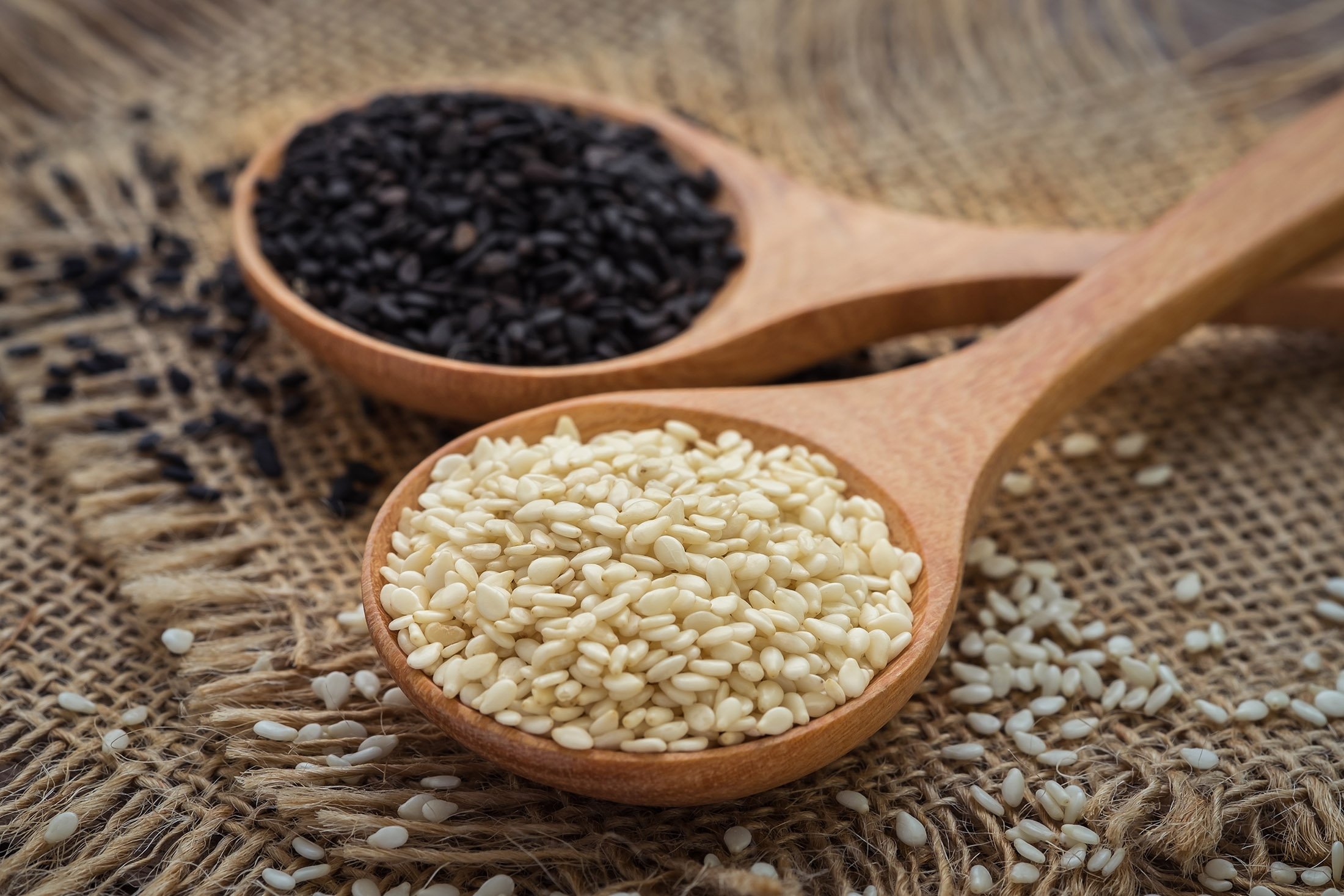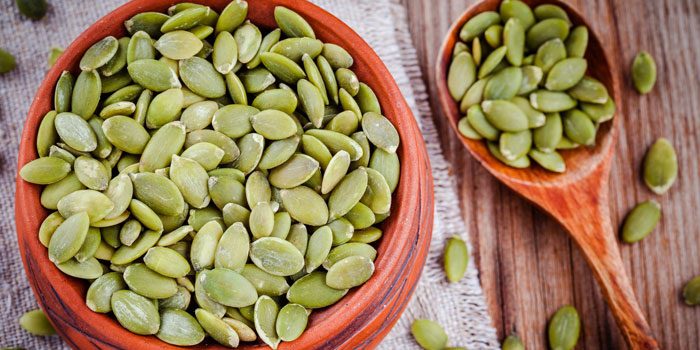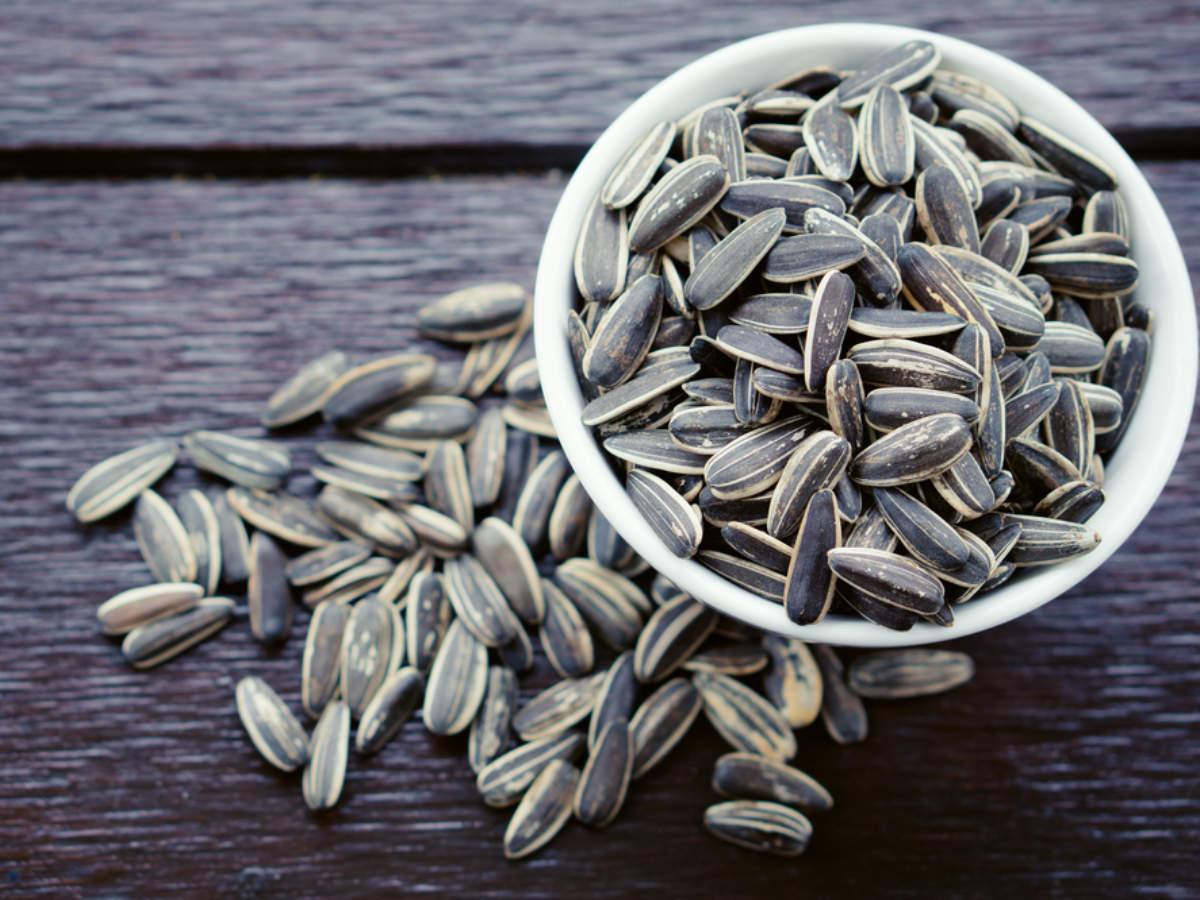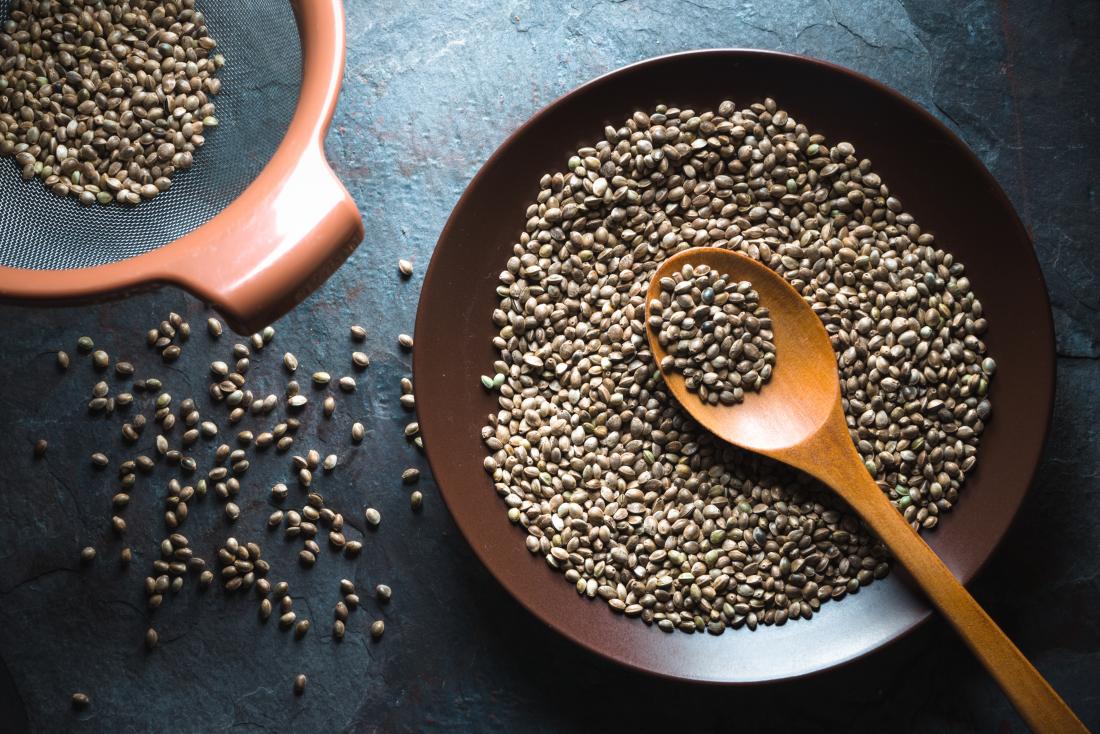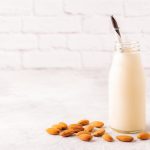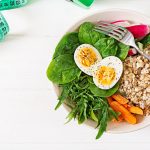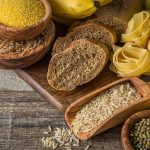Seeds are extremely nutritious and provide several health benefits. They are great sources of fiber. They also contain essential fatty acids along with important vitamins, minerals, and antioxidants. In other words, seeds are little bundles of energy, protein, and nutrients. Hence, these are considered the tiniest superfoods on the planet. Moreover, they are extremely versatile and can easily be incorporated into the diet. Thus, these powerhouses of nutrients are extremely nutritious and can be consumed daily for a plethora of health benefits they provide. Hence, this article describes the nutritional profile and health benefits of 6 of the healthiest seeds you can eat.
Health Benefits of Top 6 Super Seeds
1. Flax Seeds
Flaxseeds contain a wide mix of nutrients such as fiber, protein, monounsaturated fat, essential fatty acids, Manganese, Vitamin B1, and Magnesium. They are a good source of fiber and omega-3 fatty acids, particularly alpha-linolenic acid (ALA). However, the majority of omega-3 fats are present in the outer shell of the seeds. So, if you want to increase omega-3 levels, consume flaxseeds in their grounded form.
Flaxseeds also contain a number of polyphenols that act as antioxidants in the body. Lignans, fiber, and omega-3 fats present in flaxseeds, all help in reducing blood cholesterol levels and other risk factors for heart disease. In addition to reducing the risk of heart disease and certain types of cancer, flaxseeds also help in reducing blood sugar levels. This eventually helps in lowering the risk of diabetes.
Experts are of the opinion that flaxseeds are best eaten as grounded. Moreover, introduce these seeds slowly in your diet as our bodies have a hard time digesting and absorbing them because of the high fiber content. You can do so by mixing a small proportion of grounded flaxseeds in yogurt, smoothie, or in flour.
2. Chia Seeds
Chia seeds have a similar composition to flaxseeds, as both are good sources of fiber and omega-3 fatty acids. Other than fiber and omega-3 fats, chia seeds have a number of other nutrients such as magnesium, manganese, calcium, zinc, and polyphenols. Chia seeds are also a good source of Alpha-Linolenic acid (ALA) that helps to reduce inflammation in the body. They are also effective at lowering blood sugar levels and reducing risk factors for heart disease.
Interestingly, chia seeds can absorb up to 10 times the amount of water they are put in. Thus, this gel-like substance can help you to stay full which makes chia seeds a healthy option to include in your weight loss regime. Moreover, you can consume chia seeds as whole or grounded, making it is easy to add them to your diet. Soak them in water and add in yogurt, the end result is a healthy and tasty dessert.
3. Sesame Seeds
Similar to other seeds, sesame seeds are packed with healthy nutrients and provide several health benefits. These seeds are a good source of lignans which may improve levels of estrogen. They also help in reducing inflammation and oxidative stress in the body. Moreover, sesame seeds are a good source of iron, selenium, monounsaturated fats, manganese, and magnesium. Some studies also suggest that these have a cholesterol-lowering effect.
One of the popular ways to add sesame seeds to your diet is making a paste of it called tahini. Tahini can easily be spread on bread, though the rich and bitter flavor can be intense for some people. Moreover, you can sprinkle sesame seeds on salads or other dishes as a garnish.
4. Health Benefits of Pumpkin Seeds
Pumpkin seeds are good sources of phosphorus, monounsaturated fats, and omega-6 fats. They are also good sources of phytosterols, which are plant compounds that help in lowering blood cholesterol levels. Pumpkin seeds are loaded with nutrients such as zinc, magnesium, and copper. Studies have shown that pumpkin seed oil can improve symptoms of prostate and urinary disorders. Moreover, they also help to improve heart health. Thus, pumpkin seeds are highly nutritious and packed with powerful antioxidants. Adding these to your diet can help prevent dietary deficiencies.
These seeds are easy to consume. You can eat them as a whole or grind them to form a powder. Thus, You can add a handful of roasted or raw pumpkin seeds to your salad. Blend them with your smoothie or mix them with your oatmeal.
5. Sunflower Seeds
Sunflower seeds are a good source of protein, monounsaturated fats, and vitamin E. Research has shown that sunflower seeds are associated with reduced inflammation, which may help to reduce the risk of heart disease. In addition, sunflower seeds have a cholesterol-lowering effect. Moreover, these seeds have a good amount of minerals, B Vitamins, and antioxidants like vitamin E and selenium. According to the USDA, sunflower seeds are the richest source of vitamin E.
Aside from eating them raw, you can add sunflower seeds to your cupcakes, muffins, bread. Moreover, you can sprinkle hulled sunflower seeds on top of the salad. You can also make sunflower seed paste/butter that can easily be spread on a slice of bread. The creamy, crunchy sunflower seed paste is delicious and healthy.
6. Health Benefits of Hemp Seeds
Hemp seeds have a rich nutritional profile and provide a range of health benefits. Thus people consider hemp seeds to be superfoods. These small, brown seeds are rich in protein, fiber, and healthful fatty acids, including omega-3s and omega-6s. Hemp seeds also exert antioxidant effects that reduce inflammation in the body. Above all, these seeds contain as much protein as soybeans, containing all nine essential amino acids.
Hemp seeds protect the brain against diseases such as Parkinson’s disease, Alzheimer’s disease, multiple sclerosis, neuropathic pain, etc. High levels of omega-3 and omega-6 fatty acids lead to improving heart health. Furthermore, the antioxidant activity helps to improve skin conditions and reduce inflammation in the body.
Like other seeds, hemp seeds are easy to incorporate into your diet. You can simply sprinkle whole or ground seeds on cereal or yogurt. Add them to smoothies and shakes. Baking bread with hemp seeds or topping your muffins, or salads with hemp seeds is a great way to add them to your diet.
Bottom Line
Seeds are great sources of healthy fats, vegetarian protein, fiber, and antioxidant polyphenols. They help in reducing the risk of certain diseases. Moreover, they can easily be added to diets. However, consume seeds in moderation as they are considered calorie-dense. Too many seeds may lead to digestive issues and can even lead to weight gain.
